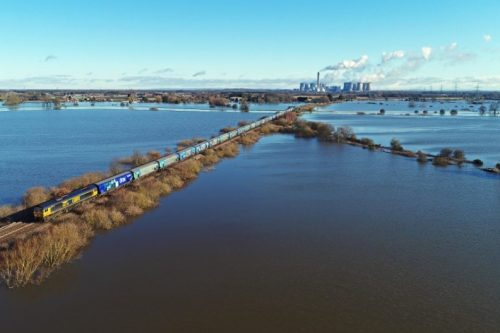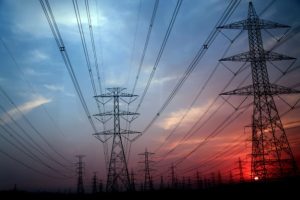Drax sees fresh opportunities to deploy its technology to help achieve net zero

North Yorkshire-based power station Drax says it expects its full year adjusted EBITDA for 2021 will be around the top of the range of current analyst expectations, subject to good operational performance during December.
The business, which has published a trading update today, says its biomass and pumped storage generation assets have played an important role in providing stability to the UK power network at a time when higher gas prices, European interconnector issues, and periods of low wind have placed the system under pressure.
In March, Drax’s two legacy coal units ended commercial generation activities and will formally close in September 2022.
These units were restarted for limited operations in September and November. Drax says these short-term measures helped stabilise the power system during periods of stress and “have not resulted in any material increase in the Group’s total carbon emissions.”
Drax’s strategy includes a target to double its bioenergy pellet production capacity by 2030 and double its pellet sales to customers in Asia and Europe, where demand is increasing in the transition away from coal.
As well as this, it sees further opportunities to deploy its bioenergy with carbon capture and storage (BECCS) technology.
Will Gardiner, Drax Group CEO, said: “We’ve continued to perform well operationally and financially and over the last six years the company has delivered increasing profits year-on-year.
“Drax has made excellent progress during 2021 providing a firm foundation for further growth.
“We have advanced our BECCS project – a vital part of the East Coast Cluster that was recently selected to be one of the UK’s two priority Carbon Capture and Storage projects.
“And we’re now setting out a strategy to take the business forward, enabling Drax to make an even greater contribution to global efforts to reach net zero.
“We believe Drax can deliver growth and become a global leader in sustainable biomass and negative emissions and a UK leader in dispatchable, renewable generation.
“As a global leader in negative emissions, we’re going to scale up our ambitions internationally. Drax is now targeting 12 million tonnes of carbon removals each year by 2030 by using BECCS.
“This includes the negative emissions we can deliver at Drax Power Station in the UK and through potential new-build BECCS projects in North America and Europe, supporting a new sector of the economy, which will create jobs, clean growth and exciting export opportunities.”
Gardiner stressed the global policy environment was now closely aligned with Drax’s own objectives, with strong support for biomass use in many jurisdictions – including the United States – and recognition that removal of CO2 from the atmosphere must begin now.
Commenting on the outcome of the UN Climate Change Conference (COP 26), he said: “I’m a ‘glass half full’ person and I think there’s an increasing desire by governments and businesses to try and make a difference and get things done.
“Businesses like ours can make the biggest differences as we have the skills, capabilities and the capital to be able to decarbonise.
“This isn’t the end of the journey, it is the beginning. It’s all very well announcing these ambitious plans, we now need to go out and deliver them.
“We’re very excited about where we’re going and we think we have plenty of opportunities. And with a lot of opportunities will come a lot of hard work.”
Drax has also reported on its biomass production capacity in North America.
It has made good progress integrating Pinnacle Renewable Energy Inc since acquisition in April 2021 and is in the final stages of commissioning over 360Kt of new production capacity at Demopolis, Alabama.
In October 2021, Drax commissioned a 150Kt expansion at its LaSalle plant in Louisiana and at Leola, Arkansas, a new 40Kt satellite plant is due to be commissioned in December.
These developments, alongside incremental new capacity in 2022, support the Group’s continued focus on production capacity expansion and cost reduction.
Once fully commissioned, Drax will operate around 5Mt of production capacity across three major North American fibre baskets – British Columbia, Alberta and the US Southeast.
It notes there has been no disruption to own-use or third-party volumes from the global supply chain delays currently being experienced in some other sectors.
Gardiner said: “At the start of the pandemic we worked closely with governments and put in place clear measures to keep our staff safe and our logistics infrastructure intact.
“With the addition of Pinnacle to our portfolio we now have a diversified supply chain, meaning we’re able to get pellets from both north west Canada and the south east of the United States.”








